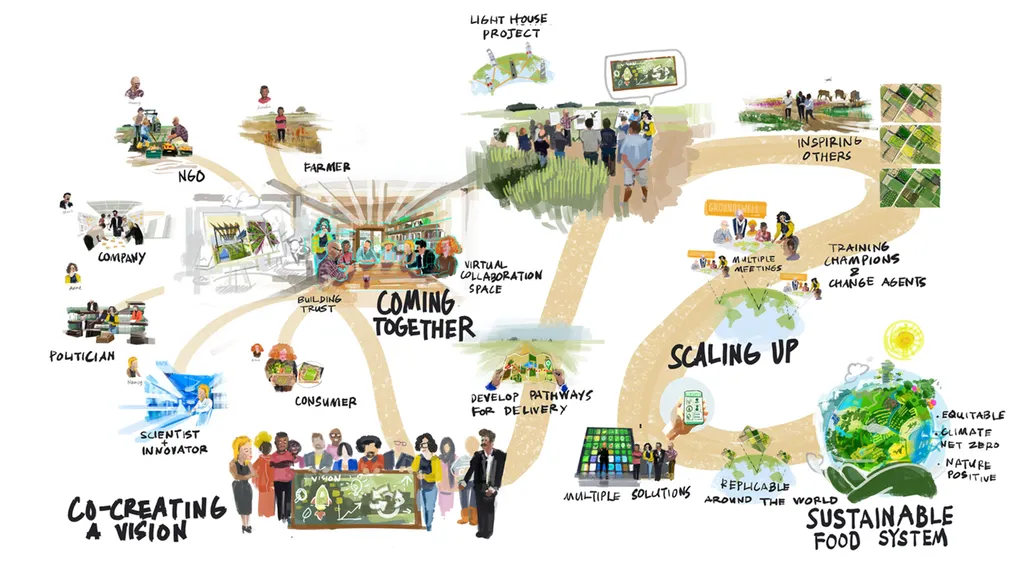In the quest for sustainable agricultural practices, a new study published in *Frontiers in Sustainable Food Systems* (which translates to *Frontiers in Sustainable Food Systems* in English) offers a compelling roadmap for balancing innovation and policy. Led by Yunxiao Yuan, the research delves into the intricate dynamics of green agricultural development, revealing how coordination between farmers, governments, enterprises, universities, and social capital can drive long-term sustainability.
The study employs evolutionary game theory to model the interactions among these key players, providing a nuanced understanding of the factors that influence strategic equilibrium in green farming practices. “Policy clarity and strength, market feedback on demand, intellectual property protection, and the collaborative capacity of innovation entities are all crucial for sustainable green farming practices,” explains Yunxiao Yuan. The research underscores the importance of these elements in fostering a cooperative environment that supports green agricultural transitions.
One of the most striking findings is the negative impact of knowledge spillover, which can undermine cooperative efforts. This insight highlights the delicate balance required to protect intellectual property while encouraging innovation. The study also demonstrates that targeted subsidies and regulatory mechanisms can effectively promote the long-term sustainability of agriculture, offering practical recommendations for policymakers, researchers, and enterprise stakeholders.
The implications for the agricultural sector are profound. By understanding the stable conditions necessary for green agricultural cooperation, stakeholders can make informed decisions that drive sustainable development. The research provides a framework for enhancing green development strategies through a balanced approach that combines internal innovation with external governance.
As the world grapples with the challenges of climate change and resource depletion, this study offers valuable insights into the mechanisms that can support sustainable agricultural practices. By integrating innovation-driven mechanisms with policy guidance, the agricultural sector can achieve green development goals, ensuring a more sustainable future for all.
This research not only contributes to the theoretical understanding of evolutionary game dynamics in green agricultural development but also provides practical recommendations for policymakers, researchers, and enterprise stakeholders. As Yunxiao Yuan notes, “Through analog simulation, the study demonstrates that targeted subsidies and regulatory mechanisms effectively promote the long-term sustainability of agriculture.” These findings offer a roadmap for achieving sustainable agricultural green development, highlighting the importance of coordination and collaboration among key stakeholders.
In the broader context, this research has significant implications for the energy sector as well. As the world transitions to renewable energy sources, the agricultural sector can play a crucial role in supporting this shift. By adopting sustainable practices, farmers can reduce their carbon footprint and contribute to the overall sustainability of the energy sector. The study’s findings can help guide the development of policies and strategies that support this transition, ensuring a more sustainable future for both the agricultural and energy sectors.
In conclusion, this study offers a comprehensive analysis of the factors influencing strategic equilibrium in green agricultural development. By providing a framework for enhancing green development strategies, the research contributes to the ongoing efforts to achieve sustainable agricultural practices. As the world continues to grapple with the challenges of climate change and resource depletion, this study offers valuable insights into the mechanisms that can support sustainable agricultural practices, ensuring a more sustainable future for all.

